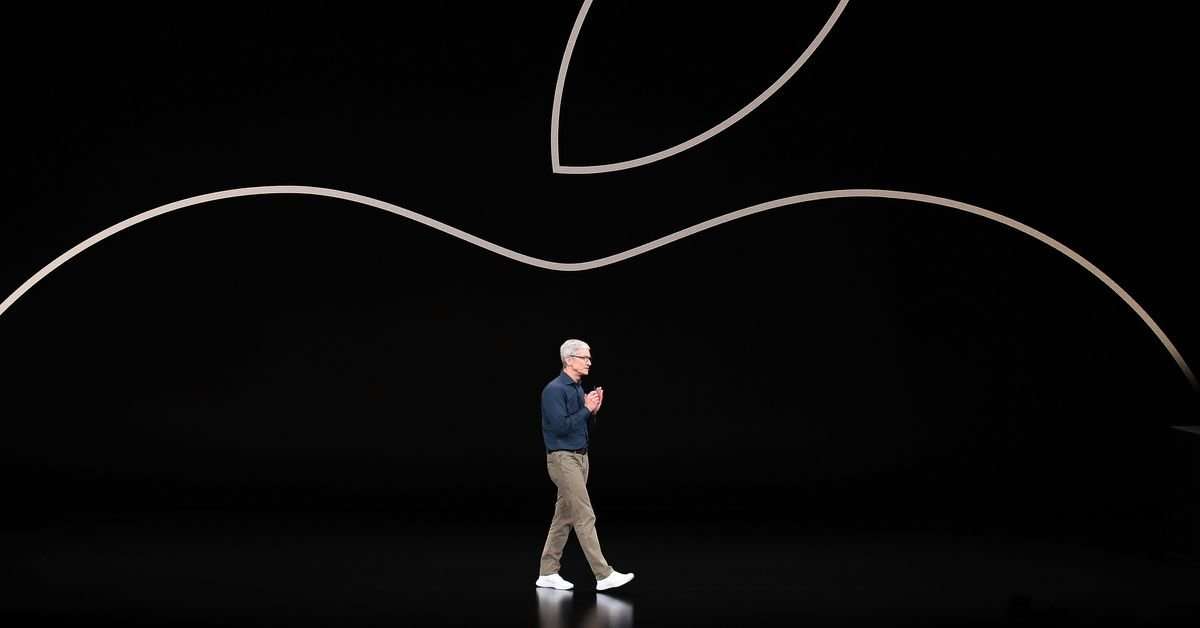News out of CES*: If you’ve bought movies or TV shows from Apple’s iTunes store, you’re going to be able to watch them on Samsung TVs — without connecting an Apple TV box to your TV.
This is one of those consumer tech announcements that is a big deal for tech reporters and analysts, and that normal people will almost never hear or care about.
But it’s still worth pointing out what this means for Apple in the near-term, and in the long run.
The obvious and accurate takeaway is that Apple has conceded that Apple TV, the device that was supposed to help it own the living room, isn’t succeeding — it trails Roku, Google and Amazon in streaming market share — and that Apple needs to be on more devices if it is going to sell more services — which is its plan to combat slumping iPhone sales.
You really can’t read this as anything but a recognition that the Apple TV doesn’t sell and Apple needs more service scale — nilay patel (@reckless) January 6, 2019
In the near future, the Samsung announcement — which I’m assuming will be replicated by other device makers — may help Apple generate a few more dollars, from an increasingly small number of Apple customers — like me — who buy or rent TV shows or movies from Apple.
If you can watch the movies and TV shows that you buy or rent on iTunes on your Samsung TV without using an Apple box, maybe that will encourage you to buy or rent more movies and TV shows from Apple in the future.
But buying or renting TV shows isn’t the future of the home entertainment business. Buying subscriptions to streaming services like Netflix is. (You know this, because you know how you spend your money and time, but if you want to fact-check yourself, check out the “electronic sell-through” line on this industry report and compare it to the “subscription streaming” on demand line.)
Apple isn’t currently in this business, but it plans on getting into it this year, when it rolls out a yet-to-be-announced video service of its own. And again, that service can make Apple more money if it’s available on more devices instead of just on Apple devices.
That’s a simple idea, but a new and important one for Apple, and it runs contrary to the way many people have been thinking about Apple’s “we’re a service company now” messaging: Apple isn’t just content to make more money from people who own Apple devices, or to convince Apple device owners to keep using Apple devices. It wants to make money from people who don’t own Apple devices — or at least don’t exclusively use Apple devices.
For years, Apple has been pushing a “lock-in” strategy toward its devices and services, where an Apple device or service works best, or only works at all, in conjunction with other Apple devices or services. It has also used its huge install base as a way to boost new products, like Apple Music, which it preloads on its devices.
But that world has been eroding for years. Now we’re in a world where consumers expect to be able to subscribe to services like Netflix or Spotify, and have them work on whatever hardware they want. We’re not there yet, but we’re getting closer.
How well Apple can compete in a world where its services don’t work as a default is another matter. Whenever it launches its video service, for instance, it will be going up against Netflix, Amazon, Disney and AT&T’s upcoming services, and more to come. Making Apple Video (or whatever it’s going to be called) available on Samsung TVs is a necessary step for Apple, but it won’t guarantee its success.
* The Consumer Electronics Show doesn’t technically kick off for a couple days, but this is part of a flurry of CES-timed announcements, the majority of which you can ignore.

bubonis on January 7th, 2019 at 14:39 UTC »
How many times is Apple going to "re-learn" this same fucking lesson? Mac System 7.0 included Apple File Exchange to allow Macs to read Windows-formatted floppy disks so they (Macs) could co-exist in a Windows world. A short while later, Mac System 7.5 included DataViz translators to allow Macs to read Windows-formatted files so that they (Macs) could co-exist in a Windows world. A large selling point of OS X was its native ability to read/write to Windows (FAT) volumes. A year after its original launch and after realizing that the iPod wasn't enough to get people to switch to Mac, the iPod was allowed to work with Windows PCs.
Apple keeps thinking that the way to sell Apple products is to ignore the reality that not everyone wants and/or can afford Apple products.
nellis_island on January 7th, 2019 at 13:42 UTC »
I feel like making an iMessage app for Android would have a way bigger impact.
bartturner on January 7th, 2019 at 11:40 UTC »
Confirmation Apple will NOT do a TV. That had been rumored for a decade now.